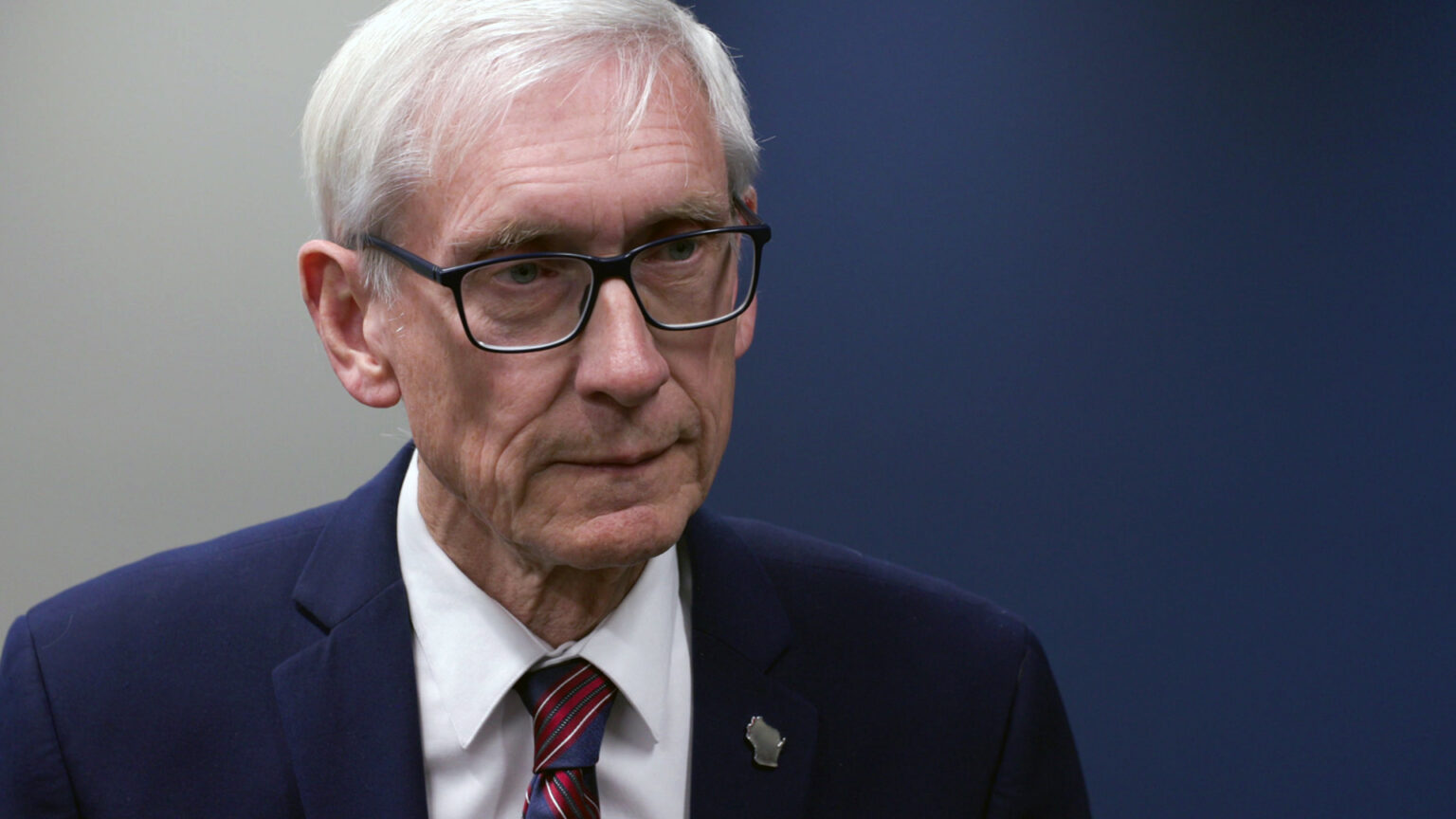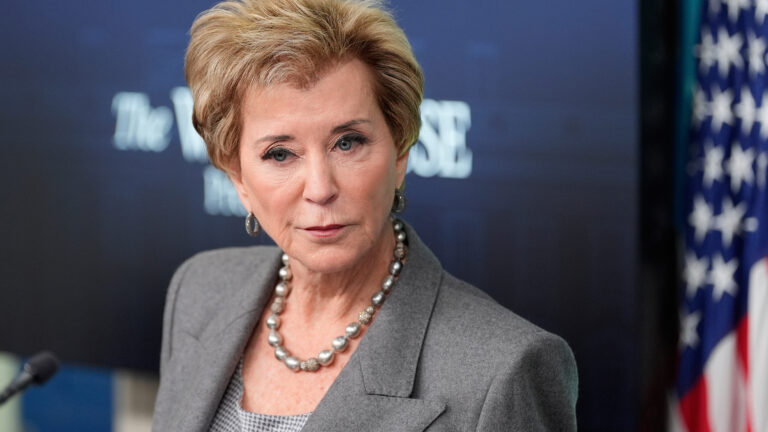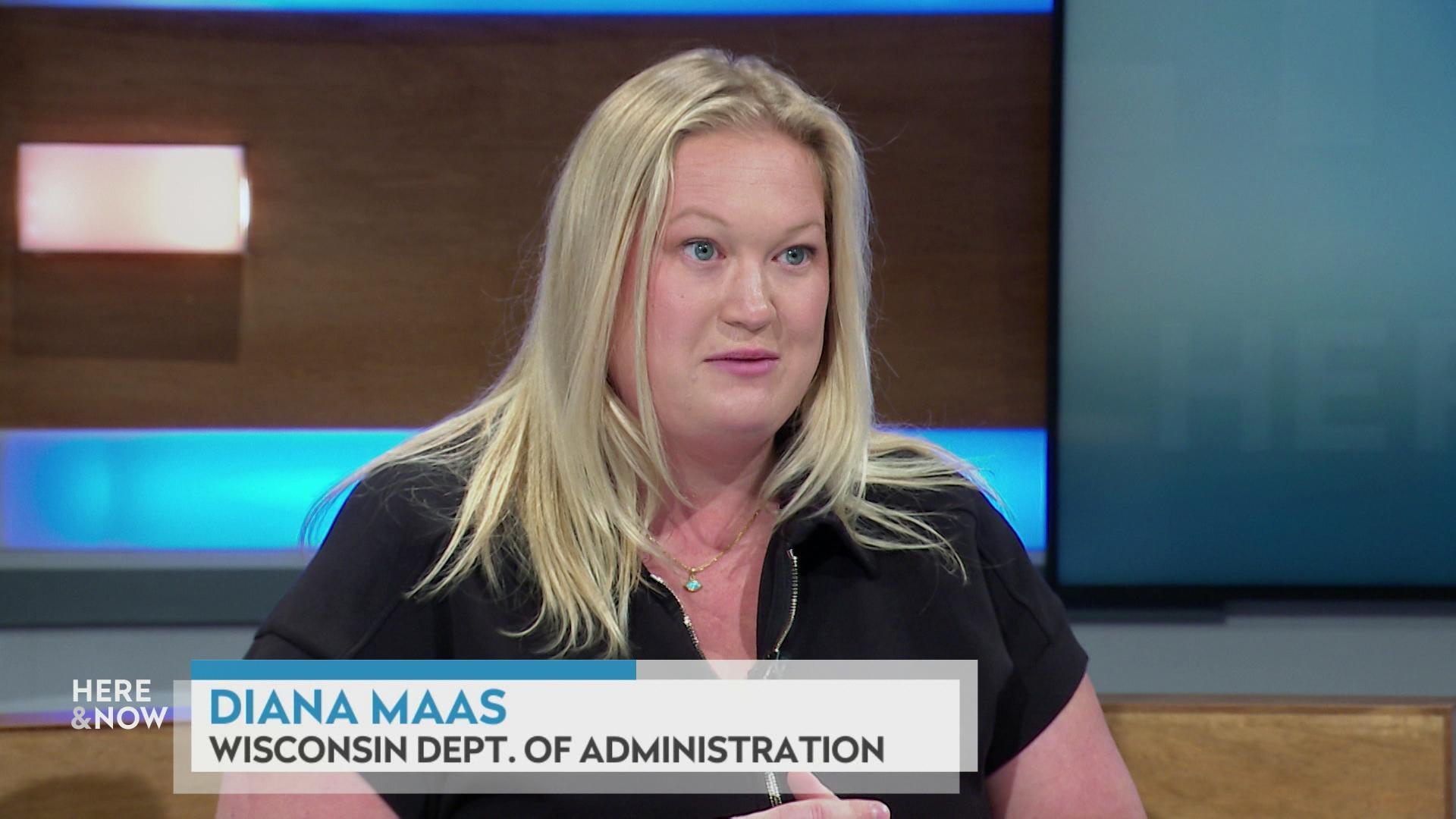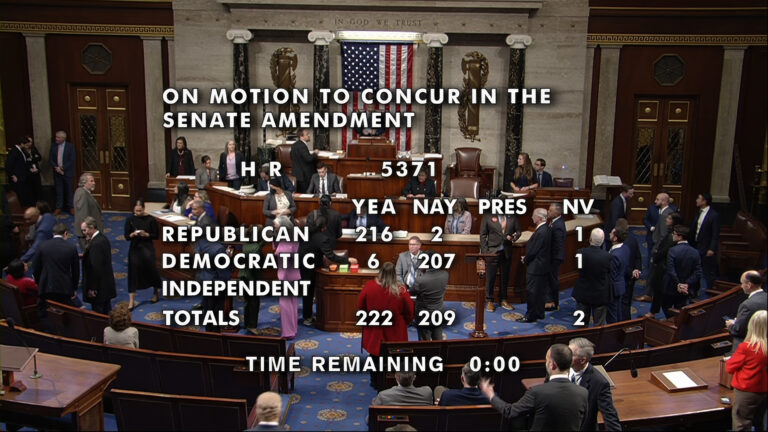Evers promises to veto Republican plan for shared revenue
Democratic Gov. Tony Evers said he would veto a Republican proposal to bolster aid to local governments in Wisconsin, saying it doesn't provide enough unrestricted money and comes with too many restrictions.
Associated Press
May 4, 2023

Wisconsin Gov. Tony Evers answers questions from a reporter in Green Bay on Dec. 20, 2022. Evers promised May 4, 2023, to veto a wide-ranging Republican plan to bolster aid to local governments, saying the measure moving rapidly through the GOP-controlled Legislature doesn't give enough unrestricted money to communities struggling to pay for police, fire and other services. (Credit: PBS Wisconsin)

MADISON, Wis. (AP) — Democratic Gov. Tony Evers promised May 4 to veto a wide-ranging Republican plan to bolster aid to local governments, saying the measure moving rapidly through the GOP-controlled Legislature doesn’t give enough unrestricted money to communities struggling to pay for police, fire and other services.
Republican authors of the bill said at a hearing on May 4 that they remained open to making changes, with Sen. Mary Felzkowski downplaying Evers’ veto threat as “part of the sausage making.” Echoing that, Milwaukee Mayor Cavalier Johnson said he remained optimistic, despite the veto threat, that Evers, Republicans, local leaders and others involved “wants to get this across the finish line.”
They will have to act fast. Republicans want to pass the bill in mid-May.
Evers made his opposition to the measure clear minutes before a public hearing called less than 48 hours after the bill was introduced, but following months of private negotiations.
Groups representing cities, towns, counties, police and firefighters, along with numerous mayors and other local officials, all testified in support of reaching a deal that increases funding.
Evers, and many of the local officials who testified, said the current proposal comes with too many restrictions. Those include a ban on public health officials from ordering businesses closed for more than two weeks and cutting aid to communities that reduce the number of police officers and firefighters.
The $1.5 billion in aid to counties, cities, towns and villages would be paid for by tapping 20% of the state’s 5-cent sales tax, an idea Evers has supported.
Under the bill, local governments would see at least a 10% increase in funding, amounting to $227 million. That new money could only be spent on police and fire protection, emergency medical services, emergency response communications, public works and transportation.
“It is not enough resources,” Evers said in a statement. “We have the resources to do it. Let’s increase the money that’s going to the locals. And, frankly, also, let’s remove all those restrictions that the legislation was putting on those local folks.”
Evers called on the Legislature to send him a bill without limitations on the use of the money.
“Let’s work together to make it happen, and I know we can get it done,” he said.
Republican legislative leaders said they were disappointed with Evers’ veto threat and called on him to reconsider.
“It’s very disappointing to come so close to the finish line only to have the Governor publicly issue veto threats because he wants to spend more money,” Assembly Speaker Robin Vos and Senate Majority Leader Devin LeMahieu said in a joint statement.
The shared revenue program to fund local governments, created in 1911, has remained nearly unchanged for almost 30 years, despite overall growth in tax revenues, according to the nonpartisan Wisconsin Policy Forum. Shared revenue for counties and municipalities was cut in 2004, 2010 and 2012 and since then has been relatively flat.
The need for more funding is particularly acute in the state’s largest city, Milwaukee, which is a Democratic stronghold and has an underfunded pension system. Milwaukee has increasingly become reliant on federal pandemic aid to fund its essential services, which city leaders have said cost $150 million more per year to maintain.
Under the bill, Milwaukee could levy a 2% sales tax and Milwaukee County could add 0.375% sales tax to its current 0.5% sales tax. Both would need voter approval, and any money raised would go toward paying for the underfunded pension and public safety services. Once the pension obligations are paid, the city and county could no longer levy the additional sales tax.
Johnson, Milwaukee’s mayor, cautioned lawmakers that the city faces insolvency by 2025 without additional state support, which he said will lead to “catastrophic budget cuts” reducing the number of police officers, firefighters and other services.
Given the risks, Johnson said he had “grave concerns” about requiring voter approval to raise taxes to meet spending needs. He said passage can’t be left to chance and approval should come from local government bodies, not voters.
The bill would also:
- Prohibit local advisory referenda questions. Many communities in recent elections have voted in favor of legalizing marijuana and protecting abortion rights, votes that don’t change the law but are designed to bolster turnout and put pressure on Republicans.
- Eliminate the personal property tax, which is a tax levied on business equipment and furnishings.
- Mandate that local governments approve projects under the state’s land stewardship program that are north of U.S. Highway 8, which runs across roughly the northernmost quarter of the state. Republicans have long raised concerns about such projects that protect the land from future development.
 Passport
Passport











Follow Us